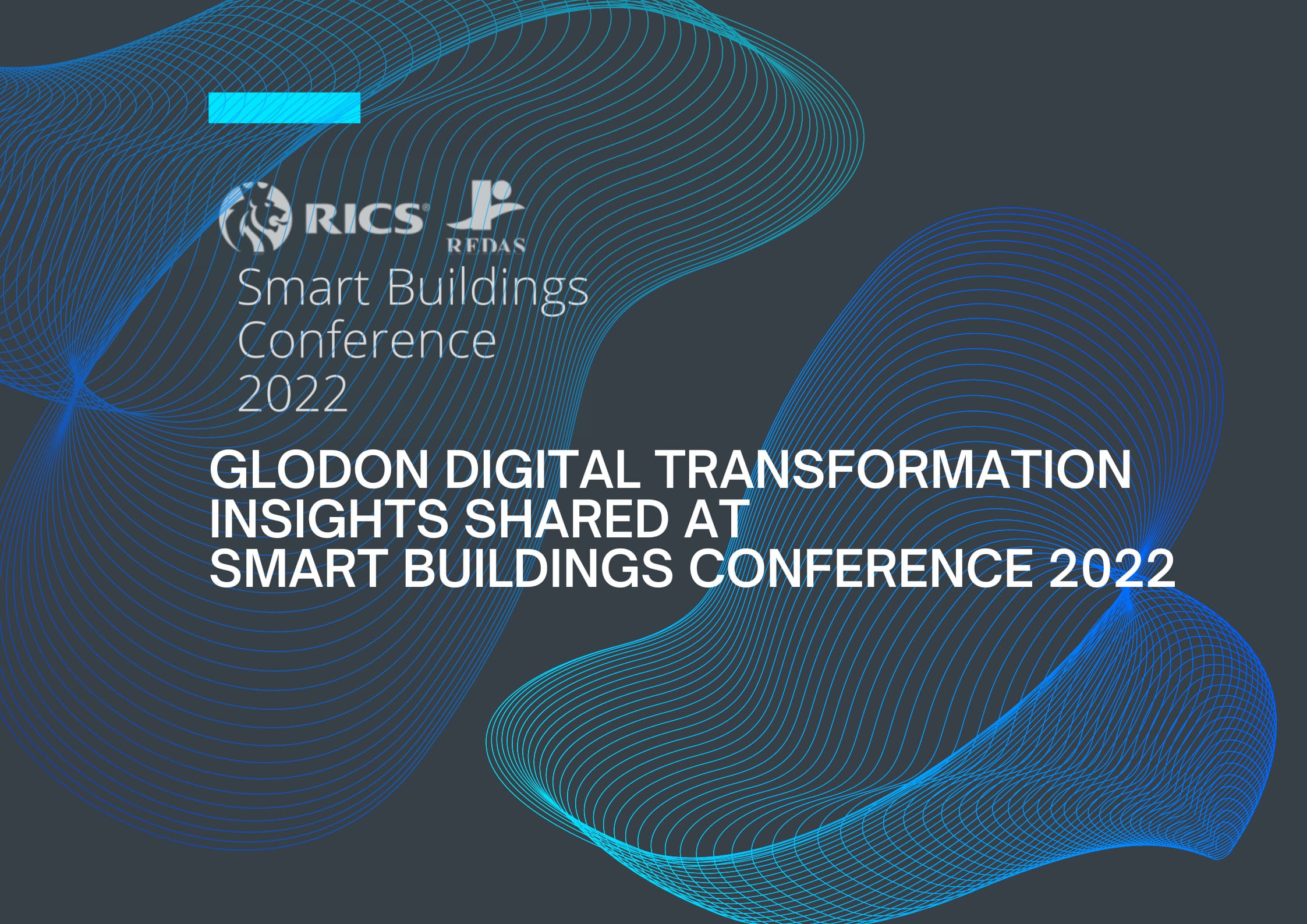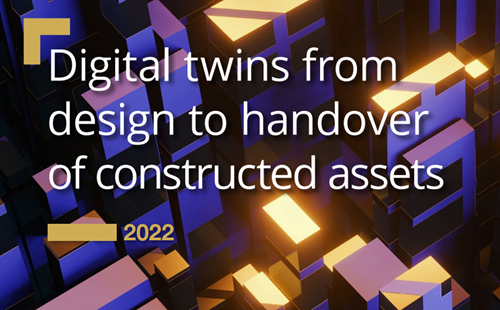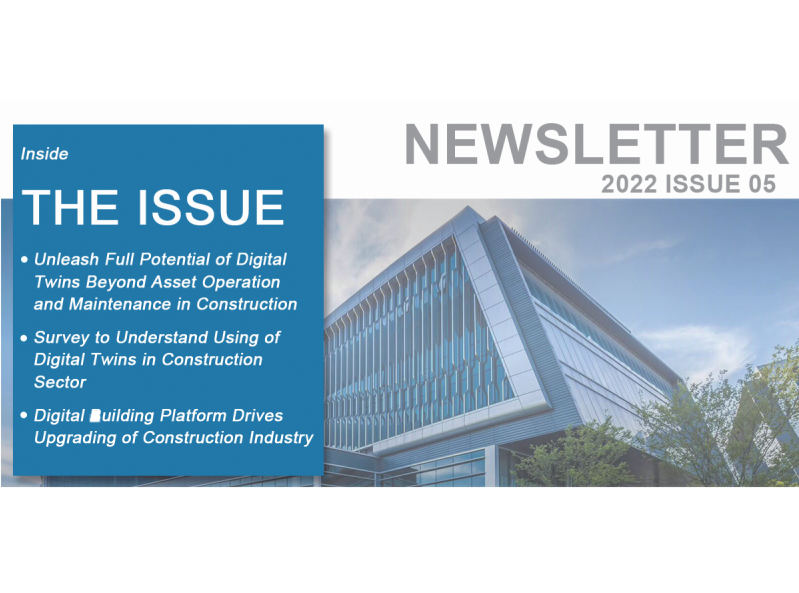Mar 16.2022
5 Benefits of Digital Transformation in Construction Sector
The world is changing fast. For past years, digital transformation has been a trend in almost every industry, bringing numerous benefits such as accelerated productivity, improved efficiency and saved cost. However, as one of the world's largest and most traditional industries, the construction industry is considered one of the least digitized sectors. The great potential and vast opportunities await ahead. Here are five potential benefits of Digital Transformation in the construction sector.
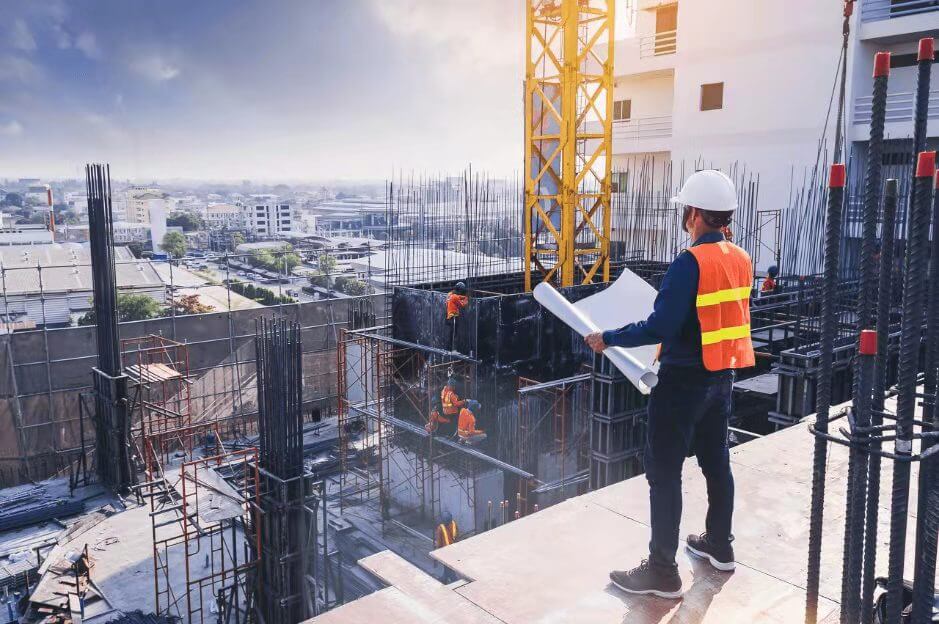
1. Productivity Improvement
A?Mckinsey study?showed that construction sector labour-productivity growth averaged 1 percent a year over the past two decades globally. There will be substantial benefits from raising the sector's productivity. Digital transformation can help improve productivity?at three different levels. At the position level, digital transformation increases the efficiency of managing personnel, machine, material, method and environments. For example, IoT equipment such as intelligent helmets realize the real-time positioning of on-site personnel; AI+5G technology enables unmanned operation of mechanical equipment; AI technology such as intelligent rebar counting saves effort for material management. At the project level, integrated management of all production elements, data and processes dramatically facilitates project collaboration. At the corporate level, when posts and projects are digitalized, and related data are shared in real-time, project-enterprise integration can be achieved, which allows better resource allocation and data-driven decision making.
2. Cost Reduction
Enterprises are reluctant to adopt digital solutions because of limited R&D budgets and ROI concerns. Some stop the digital transformation process after setbacks or efforts fail short of expectations in the short term. However, digital transformation makes better economic sense in the long term. For example, AI+5G technology enables unmanned operation of mechanical equipment to save human resources, material management system decreases material loss and total consumption, and efficient construction scheduling software can improve the planning efficiency and shorten the construction period.
3. Risk Mitigation
Construction projects are often in remote and difficult environments. Digital technologies can help mitigate risks and reduce physical exposure to danger. For example, IoT equipment such as intelligent helmets realize the real-time positioning of on-site personnel, robotics can perform tasks in a dangerous environment, and unmanned drones help identify and warn of danger on-site.
4. Collaboration Facilitation
A construction project involves multiple independent subcontractors and suppliers. By embracing digital transformation, all stakeholders that used to work in silos can be connected. BIM and real-time data exchange can help enhance communication, optimize processes and speed up the workflow. What's more important is the accumulation of corporate data assets. All data are an accurate reflection of real project dynamics. In turn, it can support project decision-making and project management.
5. Environmental Sustainability
The construction industry is the world's largest consumer of raw materials,creating an estimated third of the world's overall waste and around 40% of the world's carbon dioxide emissions. Sustainable construction has been an increasingly important notion in recent years. The use of digital technologies will improve environmental sustainability by the environment-friendly design of buildings, better allocation and use of construction resources, energy saving in the construction and operation process.
Start to Invest in Digitalization Now
With so many benefits, however, digital transformation can not be achieved overnight. It requires several changes to take place first: change the relation between upstream and downstream of the industry chain; change the whole process collaborative relations in the project and change the production relations within the organization.
These changes lead towards the development of digital building that brings new changes for the building industry where the transformation of production methods will drive the construction process from physical to digital twin construction. And further changes in management and transaction method will follow as well as the transformation of the business model towards large-scale customization and service-oriented construction.
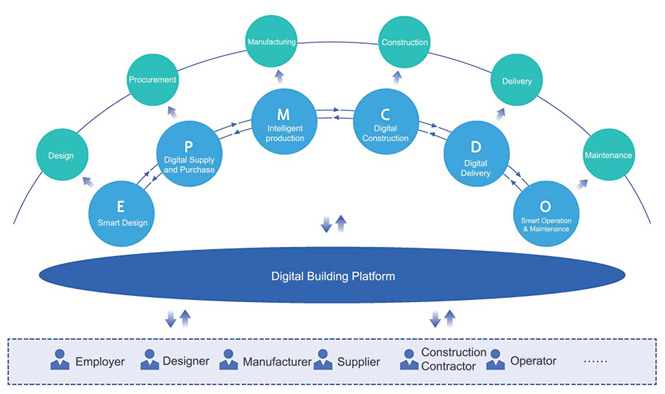
Therefore, digital building refers to an industrial strategy that uses BIM, cloud computing, big data, IoT, mobile Internet, AI and other information technologies to lead the industrial transformation and upgrading complemented by advanced lean construction. Through the effective integration of personnel, processes, data, technology and business systems, the digital building allows the digitalization, networkisation and intelligentisation of the whole process with all the elements and participants of the industry to structure a platform of a new ecological system that involves projects, enterprises and industry. This cooperation will drive industrial upgrading towards new design, construction, and operation and maintenance.
The future is coming. As a popular Chinese proverb says: "The best time to plant a tree was 20 years ago. The second best time is now.
It's time to unlock the potential of digitalization and let Glodon, a leading digital building platform service provider, be your business partner in the journey. Explore our solutions towards a digital construction future now.







